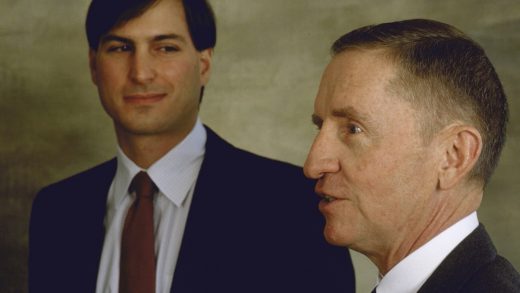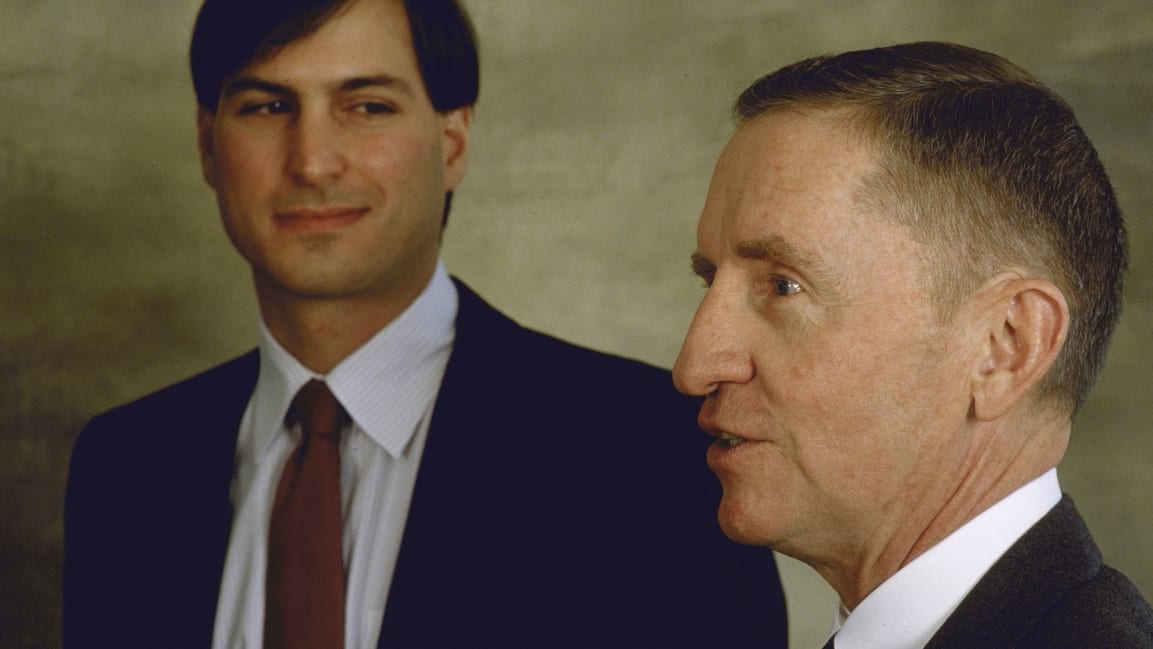How Ross Perot befriended Steve Jobs and helped bring us the iPhone
Most of us will best remember Ross Perot, who died on Tuesday at 89, for his idiosyncratic runs for the presidency in 1992 and 1996. But the career of the Dallas billionaire, who made his fortune by founding computer automation company Electronic Data Systems in 1962, is full of fascinating sidelights. One of them is his friendship with Steve Jobs and his investment in Jobs’s second computer startup, NeXT—the company whose technology eventually played a defining role in making Apple the 21st century’s most iconic business success story.
In 1986, Perot watched a PBS documentary, Entrepreneurs, which featured Jobs and NeXT. He was impressed. He was also still smarting from having failed to invest in Microsoft back in 1979, when Bill Gates had approached him about buying a stake in the then-tiny software maker.
Perot put $20 million into NeXT and received 16% of the company and a board seat in return. He told the New York Times that it was the safest bet he’d made in a quarter-century in the computer business.
As different as Perot and Jobs were in background and style, it’s easy to see how the two feisty, charismatic business mavericks bonded. Over at Cake, SmugMug cofounder Chris MacAskill, a NeXT alum, published some wonderful first-hand memories of their relationship:
I met him at a fancy developer’s conference we held at Davies Symphony Hall in SF, Steve’s favorite venue. It seemed strange to see a buttoned-up executive hanging with Steve at a conference filled with young coders in sneakers. Ross believed shoes should have laces, never slip-ons, and be polished. He had a military haircut.
We had hired Penn & Teller to perform and they were on stage with a wooden dummy when Steve & Ross entered. Steve hopped on the stage and asked nicely if he could briefly interrupt the show to welcome the developers. He told them how important he knew they were. It was perfect.
I cringed when he invited Ross to say a few words. Steve had a habit of putting unprepared guests on stage during his keynotes and they looked wooden and unrehearsed. Ross strode briskly on stage in his bolt-upright posture, faced Penn & Teller’s dummy and cracked, “You remind me of the GM Directors I serve with!” The room exploded with laughter as Ross and the dummy carried on. Even Steve was dying.
Perot’s contributions to NeXT’s cause including helping to engineer a seemingly promising partnership with IBM, where he’d gotten his start as a top salesman in the 1950s. But the Perot-Jobs love affair didn’t last. Randall Stross’s 1993 book, Steve Jobs and the NeXT Big Thing, quotes Perot in 1991, reacting to the news that the company had failed to reach profitability with a vintage Perot-ism: “So what you’re telling me is the cockpit’s on fire and the plane’s in a tailspin. So tell me something I don’t know.” In June of that year, he resigned from NeXT’s board, officially to dedicate more time to his own company, Perot Systems. Eight months later, he announced his attention to run for the presidency, and he became a national obsession for a time.
But here’s the real rest of the story: In December of 1996, a struggling Apple bought NeXT for $400 million. Steve Jobs returned to the fold as an adviser, then interim CEO, and finally CEO. NeXT’s software became the foundation for OS X, the next-generation Mac operating system. In 2007, when the iPhone arrived, its software was a custom version of OS X, reimagined to run on a smartphone. 2010’s iPad was also built on technology that originated at NeXT.
Perot may have considered his investment in NeXT to be a bust, but his dollars helped make the greatest turnaround story in corporate history possible. Well over 30 years after he forked over his $20 million, descendants of the software he funded run on 1.4 billion devices worldwide. That doesn’t sound like failure to me—and I hope that Perot derived some pleasure from it, whatever the impact on his pocketbook.
Fast Company , Read Full Story
(30)



